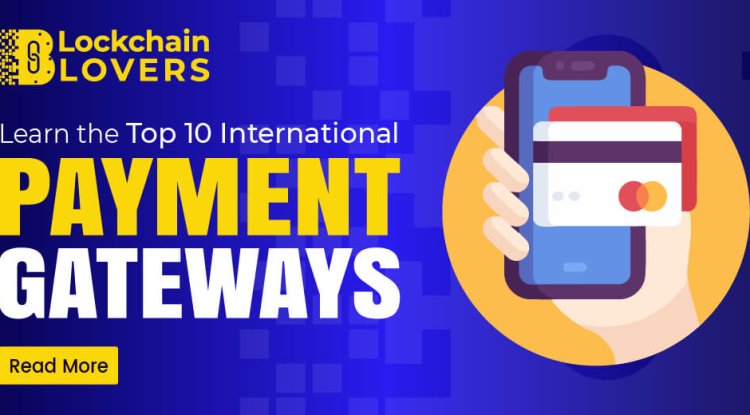What is crypto exchanges, and how do you choose the best Exchange?
If you are interested in cryptocurrency trading, you need to create an account on any crypto exchange. There are more than 500 crypto exchanges available in the crypto market for choosing a crypto account. Different exchanges offer different benefits. It is very difficult to determine which of these numerous exchanges is the most user-friendly. In this article, we will try to find out the most user-friendly exchange.

If you are interested in cryptocurrency trading, you need to create an account on any crypto exchange. There are more than 500 crypto exchanges available in the crypto market for choosing a crypto account. Different exchanges offer different benefits. It is very difficult to determine which of these numerous exchanges is the most user-friendly. In this article, we will try to find out the most user-friendly exchange.
What Is a Crypto Exchange?
Crypto exchanges are like other marketplaces where you can buy and sell cryptocurrencies like Bitcoin, Ether or Dogecoin. Cryptocurrency exchanges work much the same as other trading platforms that you may be familiar with. By creating an account on those marketplaces, you can create different types of orders to buy or sell coins or tokens in the crypto market.
Some crypto exchanges support advanced trading features, such as margin accounts and futures trading, although these are generally less available to US-based users. Many exchanges have features like crypto staking or crypto loans that allow you to earn interest from your crypto holdings. The best exchanges offer educational opportunities to keep you fully up-to-date on crypto.
How Do Cryptocurrency Exchanges Work?
Crypto exchanges generally act like brokerage platforms. You can create different types of orders to buy, sell and speculate on cryptocurrencies like other users on every platform.
There are generally two types of cryptocurrency exchanges, centralized and decentralized.
Centralized Crypto Exchanges: Crypto exchanges can be classified as centralized exchanges, meaning they are managed by a corporate authority, such as a brokerage company, which facilitates business security and decentralization.
Decentralized Crypto Exchanges: Decentralized exchanges typically provide the ability to verify anyone willing to join a cryptocurrency blockchain-like network and certify transactions. This helps increase transaction transparency and accountability and ensures that the exchange can continue even if problems arise with a company running an exchange.
Different Types of Crypto Exchange
In general, there are two categories of crypto exchanges: centralized exchanges and decentralized exchanges. Each category of exchange has its own advantages and disadvantages.
Centralized Exchanges
Centralized crypto exchange (CEX) is controlled by only one organization, hence it is called a centralized exchange. Centralized exchanges allow users to convert their fiat currencies such as dollars directly into crypto, making it easy to start crypto trading. Most crypto trading in the crypto world is conducted on centralized exchanges.
Some crypto enthusiasts have an interest in centralized exchanges because they go against the decentralized principles of cryptocurrencies. Some may be bad for crypto users, as users of companies or organizations have to follow Know Your Customer (KYC) rules. Every user is required to disclose their identity in order to take steps against money laundering and fraud, just like when you apply for a bank account.
One of the concerns of centralized exchanges is hacking. CEX holds the crypto traded on its exchange, increasing the risk of hackers stealing assets when trading takes place, at least in the short term.
In recent times, centralized crypto exchanges have increased security to address this risk. Among the strategies, they now store most of the customer assets offline to avoid the risk of hacking and have taken insurance policies to cover crypto losses in case of hacking.
If you prefer the convenience of a centralized exchange, you can reduce your risk by transferring crypto to a separate off-exchange hot or cold wallet.
Decentralized Exchanges
Decentralized crypto exchanges (DEX) distribute power to facilitate and validate crypto trading. Much like cryptocurrency blockchains anyone can join a DEX network to certify transactions. This increases accountability and transparency as well as ensures that an exchange continues, regardless of the company it is created for.
The problem is that decentralized exchanges are not user-friendly, not only from the interface point of view but also in terms of currency conversion. For example, decentralized exchanges do not always allow users to deposit dollars and exchange crypto. Which means you either need to already own crypto before using it on the DEX or use a centralized exchange to get crypto.
You can directly engage in peer-to-peer trading here. This means it may take you longer to find someone to sell or buy what you want. If liquidity is low, you may have to discount the price to buy or sell a low-volume crypto quickly.
Crypto Exchange Fees
There are two types of fees you may have to pay when you buy or sell crypto, these are trading fees and withdrawal fees.
Trading Fees
Trading fees may be charged as a flat percentage on the amount of crypto you buy or sell, or an exchange charges a different percentage depending on the difference between the maker and the taker.
At a basic level, manufacturers add liquidity to an exchange, meaning they don't fill standing orders. The receiver removes liquidity from an exchange by completing orders that are waiting for a trade. The taker fee is slightly higher than the maker fee, although it is not the same in all exchanges as it depends on the exchange.
While you'd ideally choose an exchange with the lowest cost, dwelling too much on the ins and outs of producer and acquirer fees can be counterproductive. This is because you cannot choose whether your order will be processed as a manufacturer or receiver. Instead, you'll be better served by considering the overall fee and any discounts that exist for trading a certain amount per month or holding the exchange's native cryptocurrency.
It is very important that some crypto investment apps claim to charge zero fees, but this is completely false. Instead of charging you directly, they charge a spread which is the difference between the rate at which they buy or sell crypto. The spread can and often does, it can be much higher than if you were paying a percentage trading fee.
Withdrawal Fees
Many exchanges charge a fixed portion fee for withdrawing coins from their platform. This can be a problem if you want to transfer your crypto to a third-party wallet or another exchange. Withdrawal fees are usually determined by cryptocurrency.
If you are thinking of withdrawing your crypto from an exchange, you should choose a platform that allows fee-free withdrawals.
Other Fees
If you join a more advanced trading platform, such as margin trading, borrowing money will incur additional fees. Beginner-friendly exchanges like Coinbase and Gemini offer faster buying features but charge higher fees. You can avoid them by learning how to trade crypto on the exchange's trading platform.
If you shop with a credit card or debit card, both the exchange and your card issuer may charge you a premium. So it is better to buy crypto with cash or wire transfer.
How to Choose a Cryptocurrency Exchange
Aside from fees, other things you need to consider when choosing the best crypto exchange:
· Security
· Trading volumes
· Educational resources
· If the exchange lists the cryptocurrencies you’re interested in buying
Security
As crypto has become popular and valuable day by day, it has become a big target for hackers. Many top exchanges like Binance and KuCoin have been hacked, causing millions of dollars in losses. Although exchanges often reimburse those whose coins are stolen, no one wants to take that risk.
You can reduce your risk by spreading your cryptos across multiple exchanges. Alternatively, try moving your crypto holdings from the exchange's default wallet to your own secure "cold" wallet. These are storage options that aren't connected to the internet, making them impossible to hack - although you have to carefully store your passcode otherwise you may lose access to your crypto forever.
Available Coins
Carefully note the cryptocurrencies that exist on a given exchange. You can be a perfectly good trader just using a crypto exchange that only trades a few coins. Again, if you are a crypto enthusiast, you can get access to all of the more than 600 that exist on the Gate.io exchange.
Trading Volume
The mere availability of coins is not enough if there are no transactions. You would ideally verify that your target coin has sufficient trading volume to ensure liquidity so that you can easily trade your coins and dollars.
Low-volume markets may cost you to sell. This is called slippage, if the volume is low and you place an order. In this, you have to finish the purchase at a higher price or you can sell at a lower price.
If you're a good quality crypto trader, you'll want to make sure your preferred exchange offers trading types, such as limit orders, that prevent slippage by setting a solid price and the margin you want. Note that the types of crypto trading involved in the latter are still evolving in the US, so the offerings of different exchanges may change over time.
Educational Resources
If you are new to the cryptocurrency world and just starting trading, look for an easy-to-use platform with plenty of educational resources to help you get a feel for this complex, fast-growing market.
Accessibility
Finally, don't think that an exchange exists only in your country or even state, because many people, including you, can access its website. Many state and federal governments are still figuring out exactly how to treat cryptocurrencies legally and from a tax perspective.
What's Your Reaction?





















